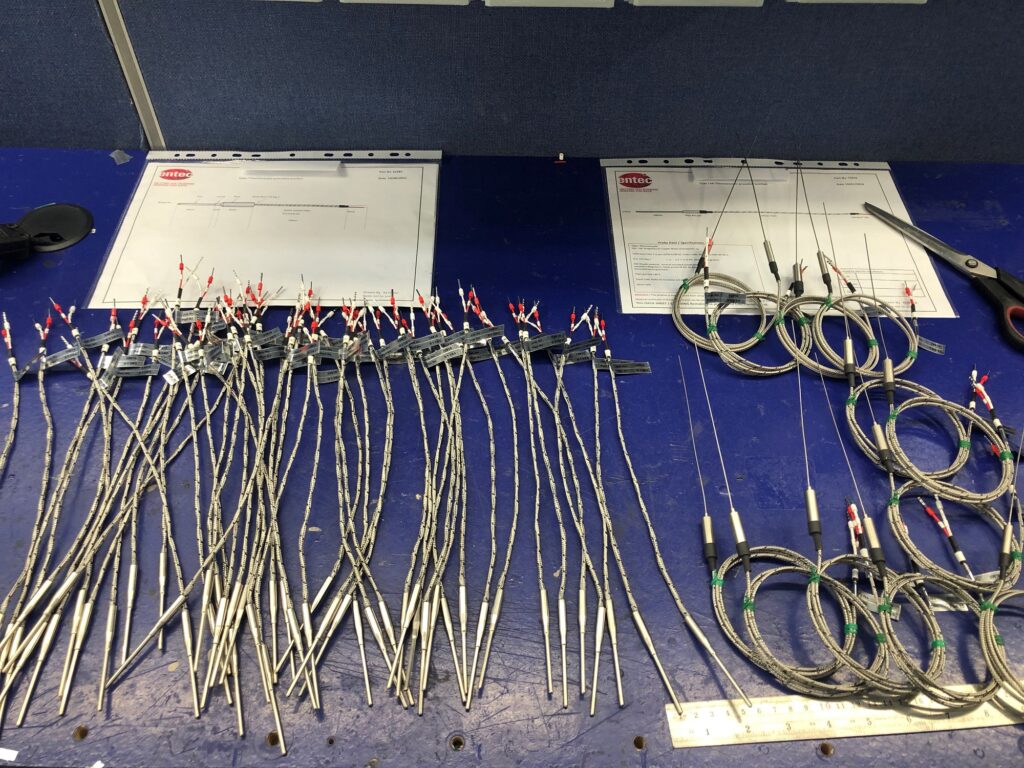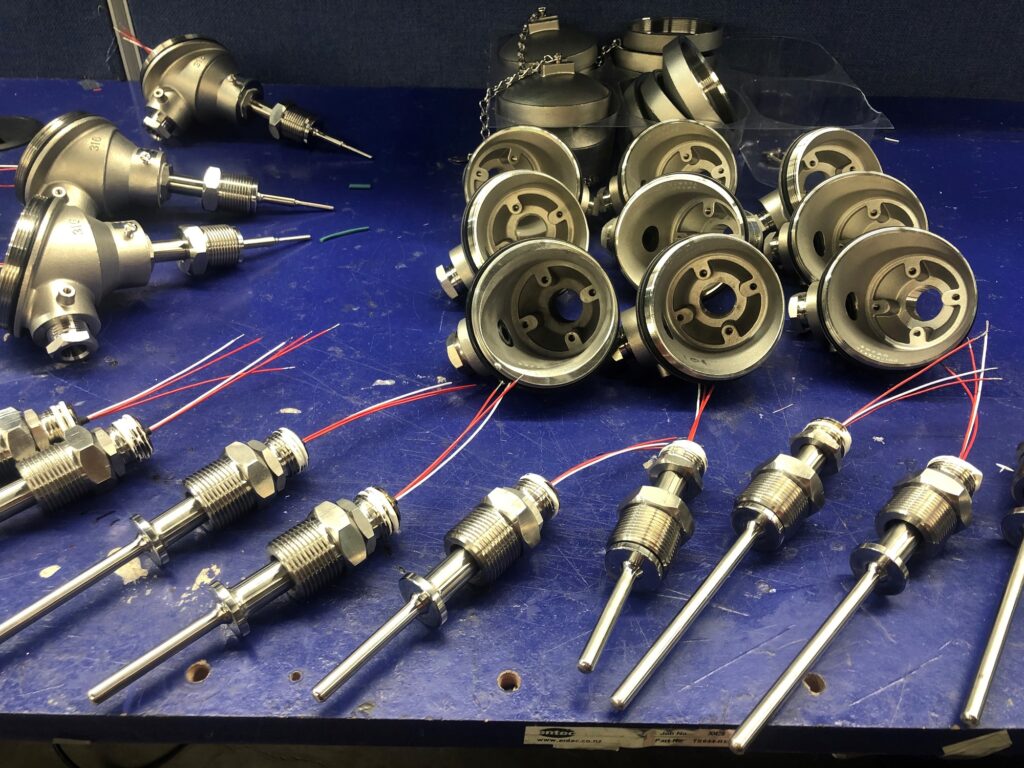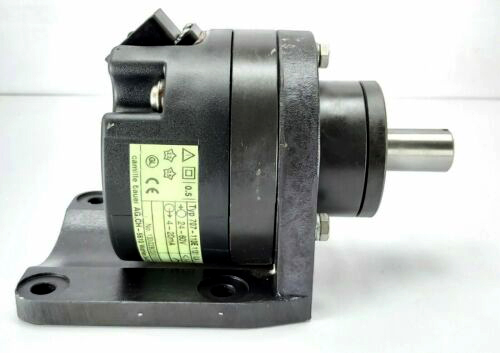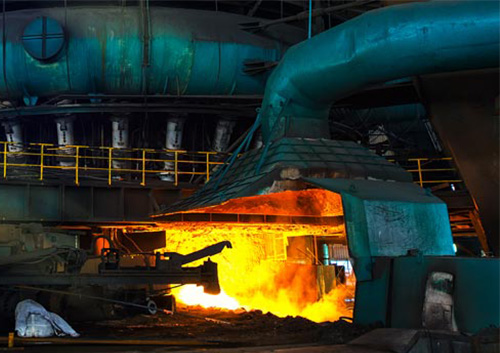Instrumentation & Electrical
Got a question? We are here to help.
Mark Knowles
Director - Strategic Sales & Innovation
Custom Temperature Sensors
Temperature sensors are devices that transform temperature readings into electrical signals, enabling further analysis and processing. The accuracy, response time, and temperature range of a sensor depend on its technology and design. These sensors are used in various industries where accurate measurement and monitoring of temperature changes are crucial.
Entec designs and manufactures an extensive range of temperature sensors for all types of applications where temperature measurement is required. This design and manufacturing service is fairly rare in this modern age; if you have an unusual or exotic temperature measurement requirement, there’s a good chance we can help you out.
We hold a large inventory of raw materials and can meet our customers' demands for very fast delivery times when required.
Entec designs and manufactures an extensive range of temperature sensors for all types of applications where temperature measurement is required. This design and manufacturing service is fairly rare in this modern age; if you have an unusual or exotic temperature measurement requirement, there’s a good chance we can help you out.
We hold a large inventory of raw materials and can meet our customers' demands for very fast delivery times when required.
 |  |
What type of sensors can you make?
Entec’s main products are RTD’s (Resistance Temperature Detector) and Thermocouples. Our RTD’s and Thermocouples come in all shapes, sizes and temperature ranges.
Thermocouples
Thermocouples are widely used temperature sensors due to their versatility and robustness. They consist of two different metal wires joined at one end. When exposed to a temperature gradient, an electromotive force (EMF) is generated, allowing temperature measurements.
Thermocouples can withstand high temperatures, making them suitable for extreme environments. Our Entec Thermocouple range is mineral insulated and includes Type J, K, T, E, R, S and B.
Thermocouples can withstand high temperatures, making them suitable for extreme environments. Our Entec Thermocouple range is mineral insulated and includes Type J, K, T, E, R, S and B.
Resistance Temperature Detectors (RTDs)
RTDs are temperature sensors that rely on the principle of the change in electrical resistance with temperature. Typically made of platinum, RTDs offer high accuracy and stability over a wide temperature range. They find extensive use in scientific and industrial applications that demand precise temperature measurements. Our Entec RTD range includes duplex, sanitary, PT100, PT1000 and high-temperature sensors.
Choosing the best Temperature Sensor
When selecting a temperature sensor, several factors need to be considered, such as accuracy requirements, temperature range, response time, environmental conditions, and budget. Understanding the advantages and limitations of each sensor type will help in making an informed decision.
One of the points of difference between Entec’s range of temperature sensors is their ability for a quick response; this can be crucial in some manufacturing processes to improve product quality and reduce waste.
We have extensive experience in designing the best temperature sensor for every application. Get in touch to see if our instrumentation experts can help solve your temperature-sensing problems or improve on your existing solutions.
One of the points of difference between Entec’s range of temperature sensors is their ability for a quick response; this can be crucial in some manufacturing processes to improve product quality and reduce waste.
We have extensive experience in designing the best temperature sensor for every application. Get in touch to see if our instrumentation experts can help solve your temperature-sensing problems or improve on your existing solutions.
Where might I need temperature sensors?
Temperature measurement is one of the most common forms of process measurement in industry. Our customers are all across New Zealand and include the following industrial sectors:
In addition, Entec also provides bespoke temperature sensors to a number of original equipment manufacturers, which incorporate our sensors into their finished products. We can guide you through the design and build process to ensure you have the best temperature sensor customised to your specification.
What is different about Entec’s temperature sensors?
Temperature sensors are made in the millions around the world each year. In most instances, they are commodity products.
Entec’s point of difference is the specialist knowledge we bring to the design and manufacture of our temperature sensors. We have a huge library of standard designs but can also design a new sensor to unique requirements. We work with different materials to suit the particular application. Depending on the medium which is being measured, the type of process, or the dimensions and installation details, we can come up with a high-quality temperature-sensing solution for your needs.
Entec’s point of difference is the specialist knowledge we bring to the design and manufacture of our temperature sensors. We have a huge library of standard designs but can also design a new sensor to unique requirements. We work with different materials to suit the particular application. Depending on the medium which is being measured, the type of process, or the dimensions and installation details, we can come up with a high-quality temperature-sensing solution for your needs.

Camille Bauer
Camille Bauer has many years of experience in the development of instruments that operate precisely in arduous conditions. The safety and quality of their instruments has been well documented by external accredited test laboratories, as well as independent international certification bodies.
Camille Bauer products distributed by Entec:

Pyrometers
Pyrometers are specialised temperature sensors used for non-contact temperature measurement. They work based on the principle of detecting thermal radiation emitted by an object. Pyrometers can measure high temperatures and are suitable for moving or inaccessible objects.
Looking for a quality pyrometer in NZ? Williamson is a leading manufacturer of high-temperature pyrometers used for the accurate and reliable measurement of process media. Williamson is a family-owned business based in Concord, Massachusetts, and has a history of more than 65 years, specialising in temperature measurement.
Looking for a quality pyrometer in NZ? Williamson is a leading manufacturer of high-temperature pyrometers used for the accurate and reliable measurement of process media. Williamson is a family-owned business based in Concord, Massachusetts, and has a history of more than 65 years, specialising in temperature measurement.
Where are Williamson pyrometers required?
Williamson pyrometers are suited to a number of industrial applications, including…
Williamson Pyrometers
What is special about Williamson pyrometers?
Angular Positioners
Whether it’s the throttle valve on a power plant, crane booms under heavy loads, or a spillway gate on a dam; almost anywhere in heavy industry, angular position is critical to the process. Measurement of this position must be accurate and precise, in order that the controlling system can take the correct type of action.
Angular Position Transmitters acquire the angular position of a shaft and convert the mechanical movement into a proportionate DC signal.
Inclination Transmitters convert the tilt angle into a DC signal, proportional to the angle.
Angular Position Transmitters acquire the angular position of a shaft and convert the mechanical movement into a proportionate DC signal.
Inclination Transmitters convert the tilt angle into a DC signal, proportional to the angle.
How to enquire about Entec temperature sensors…
Email: info@entec.co.nz (no unsolicited messages/spam please)
Auckland Phone: +64 9 277 2211
Taranaki Phone: +64 6 758 3030
South Island Phone: +64 3 266 0808
Auckland Phone: +64 9 277 2211
Taranaki Phone: +64 6 758 3030
South Island Phone: +64 3 266 0808
